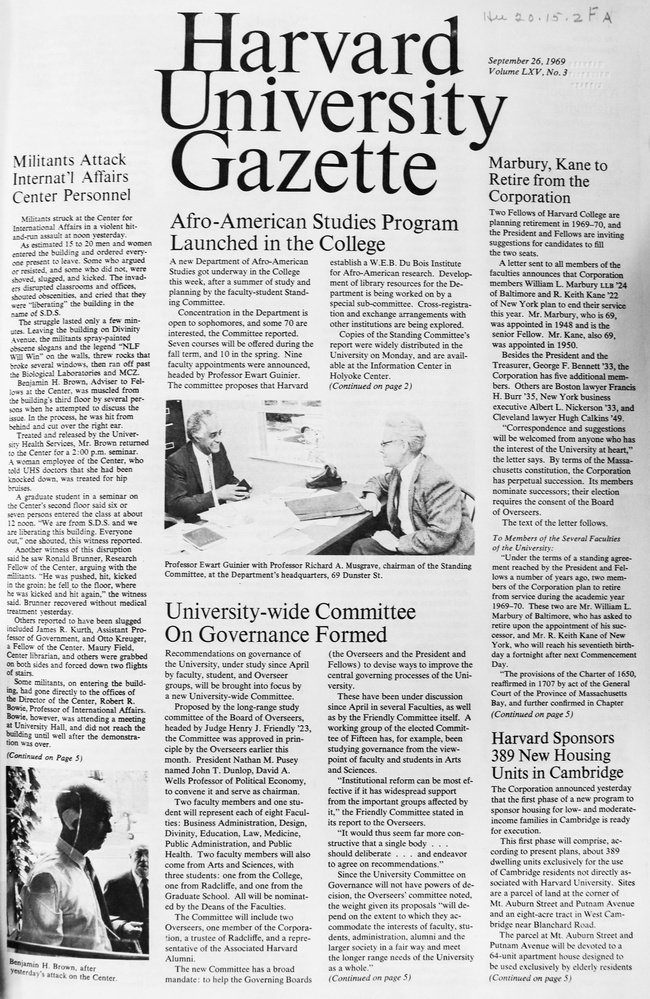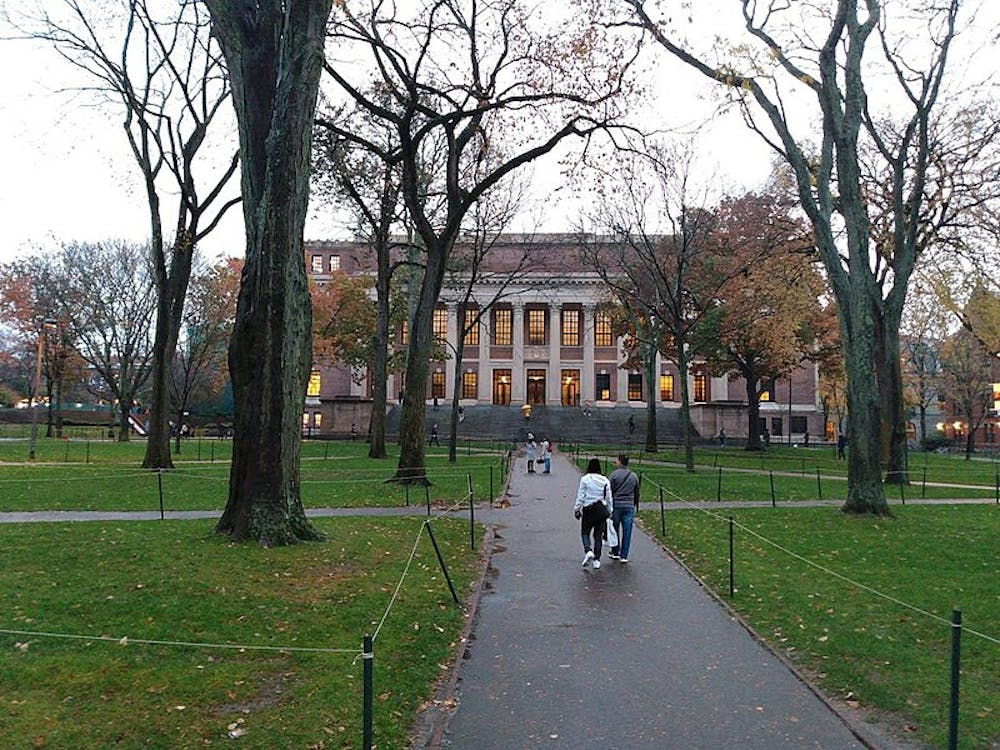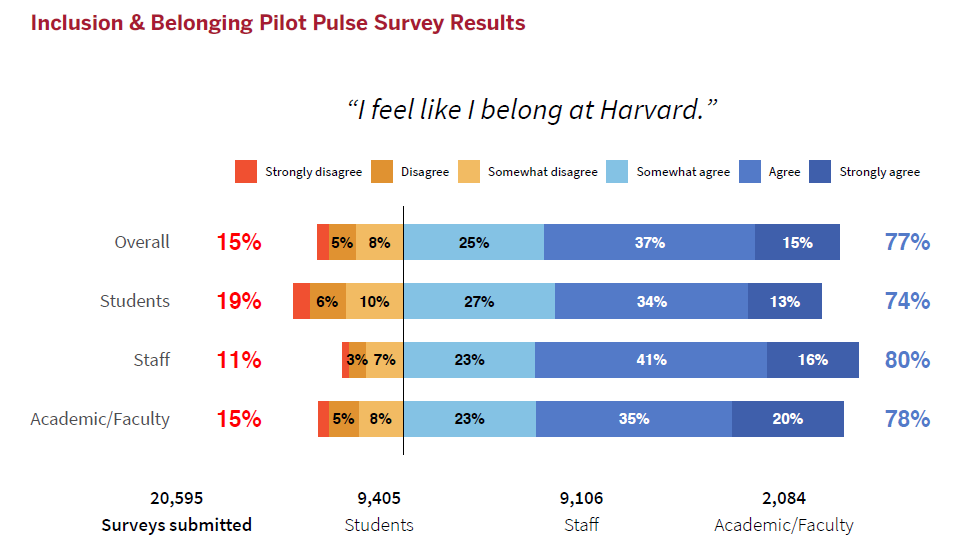The Harvard Gazette serves as the premier source of news and insights from Harvard University, providing readers with a unique glimpse into groundbreaking research, campus happenings, and community stories. This week’s edition highlights pressing topics including the impact of climate change on local ecosystems and the surprising health benefits of oils, revealing how simple dietary changes can lower the risk of premature death. Additionally, the article addresses the complexities surrounding homeowners insurance in light of unexpected natural disasters, offering a look into regulatory changes in states like California. Notably, the Gazette also touches on the historical significance of typewriters within the university, showcasing how they have shaped academic communication over the years. Whether you’re interested in Harvard news or broader environmental discussions, the Harvard Gazette has something for everyone.
Harvard’s digital news platform provides an essential overview of the university’s latest research and community dynamics. This week’s articles delve into crucial issues such as the repercussions of changing climatic conditions on biodiversity, highlighting alternative oils that may promote better health outcomes. The discussion of insurance for homeowners shows how external factors influence industry standards and consumer protection. Furthermore, readers can explore the nostalgia associated with typewriters, appreciating their role in academic history and communications at Harvard. From environmental shifts to advancements in public health, the Gazette offers a rich collection of narratives that connect historical context with modern developments.
Health Benefits of Plant-Based Oils vs. Butter
Recent research highlights significant implications for dietary choices, suggesting that swapping butter for plant-based oils such as olive, canola, or soybean can lead to a 17 percent lower risk of premature death. This shift towards healthier fats may be attributed to the nutritional composition of these oils, which are rich in unsaturated fatty acids that promote heart health. Additionally, plant-based oils generally contain fewer calories compared to butter, making them a preferable alternative for those mindful of their caloric intake.
Moreover, plant-based oils are less commonly used in sugary baked goods, which often contribute to higher rates of obesity and related health issues. By incorporating these oils into daily diets, individuals not only reduce their saturated fat consumption but also enhance their overall well-being. This trend resonates with wider Harvard news around health and nutrition, prompting many to reconsider established dietary staples in favor of more health-conscious alternatives.
Impact of Climate Change on Harvard Forest
Harvard Forest is experiencing notable changes as climate change alters its ecological landscape. One of the most significant observations is the decline of hemlock trees, which are increasingly being replaced by tree species such as Douglas firs and black birches. This shift not only affects the biodiversity of the forest but also influences the carbon sequestration capabilities of these areas, thereby impacting climate mitigation efforts. As public awareness increases, this scenario reflects a broader concern about climate change’s pervasive effects on forests worldwide.
Invasive species are also making their mark on Harvard Forest, complicating the natural succession of plant life. These invasive vines, while opportunistic, threaten the stability of the ecosystem and highlight the urgent need for effective conservation strategies. The ongoing research on the climatic shifts affecting Harvard’s natural resources serves as a critical reminder of the interconnectedness of climate change and ecological health, emphasizing the necessity for sustainable management practices.
Homeowners Insurance and Climate-Related Risks
The impact of climate change on homeowners insurance has led to significant regulatory changes, particularly in wildfire-prone areas like California. After devastating wildfires, regulators introduced new measures allowing insurance companies to implement catastrophic models to better assess and price risks. This approach reflects a growing recognition of the challenges posed by climate-related events, which can threaten the affordability and availability of homeowners insurance as natural disasters become more frequent and severe.
In response to these challenges, California has also explored state-funded insurance programs, aiming to create a safety net for homeowners who may struggle to find coverage in a volatile market. This proactive stance illustrates the evolving nature of homeowners insurance, prompting discussions among policymakers and homeowners alike about the best ways forward in an era increasingly defined by climate change impacts.
The Evolution of Typewriter Usage at Harvard
The history of typewriter use at Harvard reflects both technological advancement and a nostalgic appreciation for traditional writing tools. Notably, some scholars, such as Jill Lepore, continue to cherish their typewriters, underscoring a unique blend of old and new in academic writing practices. This reinforces the notion that despite the proliferation of digital technology, there remains a space for analog devices that foster creativity and individuality in writing.
Typewriters, once the mainstay of communication and academic work, may seem anachronistic in today’s digital age. However, their influence on the personal writing styles of scholars at Harvard highlights the persistence of legacy tools. As conversations around the historical importance of typewriters evolve, they offer a fascinating glimpse into the past while triggering reflections on how technological advancements shape our communication.
Harvard Gazette: Insights and Highlights
The Harvard Gazette serves as a vital platform for disseminating insights from the university community. With a focus on health, science, and societal impacts, the Gazette continually informs the public about groundbreaking research and notable happenings. Recent articles, for example, discuss the health benefits of plant-based oils, shedding light on how dietary choices can significantly influence long-term health outcomes.
In addition to health-related topics, the Gazette also addresses pressing concerns like climate change and its effect on local ecosystems. As featured in recent reports, the changing landscape of Harvard Forest reveals critical information about how elevated temperatures and shifting weather patterns have reshaped the natural world. By highlighting such issues, the Gazette plays an essential role in fostering an informed community while illustrating the university’s commitment to addressing real-world challenges.
Frequently Asked Questions
What recent Harvard Gazette research highlights the health benefits of oils over butter?
A recent article in the Harvard Gazette reveals that substituting butter for plant-based oils like olive, canola, or soybean oil may reduce the risk of premature death by 17 percent. This is attributed to the healthier fat composition found in these oils, which are high in unsaturated fatty acids and lower in calories.
How is climate change impacting Harvard Forest according to the latest Harvard Gazette findings?
According to findings published in the Harvard Gazette, climate change is significantly impacting Harvard Forest, leading to the decline of hemlock trees. In their place, species such as Douglas fir and black birch trees are emerging, showcasing the ongoing ecological shifts due to climate change.
What changes have California regulators made regarding homeowners insurance in response to climate change, as featured in Harvard Gazette?
The Harvard Gazette discusses how California regulators modified homeowners insurance rules following severe wildfires. They now permit insurance companies to utilize catastrophic models to assess and price risks, reflecting the elevated impacts of climate change on property insurance.
Can Harvard Gazette provide insights on how to lower drug manufacturing costs?
The Harvard Gazette suggests that potential lower manufacturing costs for pharmaceuticals may stem from utilizing a modified relative of common household liquids, such as vinegar. This innovative approach could streamline production and reduce expenses in drug manufacturing.
Which prominent Harvard scholar mentioned using typewriters in the Harvard Gazette?
In a recent piece in the Harvard Gazette, scholar Jill Lepore shared that she still uses three typewriters she purchased from Cambridge Typewriter, highlighting a nostalgic connection to these tools amidst today’s digital age.
| Key Point | Details |
|---|---|
| Ditching Butter | Research shows swapping butter with plant-based oils can lower premature death risk by 17%. |
| Climate Change Impact | Dying hemlocks in Harvard Forest are being replaced by Douglas firs and black birch trees. |
| Homeowners Insurance Issues | After wildfires, California regulators allowed companies to use catastrophe models to assess risks. |
| Lowering Drug Manufacturing Costs | Research indicates that modifying a common household liquid could reduce pharmaceutical costs. |
| Typewriters at Harvard | Notable scholar still uses three typewriters purchased from Cambridge Typewriter. |
Summary
The Harvard Gazette reports on significant trends and discoveries shaping our understanding of health, environment, economics, and culture. This week’s highlights include crucial dietary insights that indicate ditching butter for healthier plant-based oils could reduce premature death risks, the notable effects of climate change on forests, particularly Harvard Forest, and adjustments in California’s homeowners insurance model post-wildfires. Additionally, a breakthrough in reducing drug manufacturing costs has been suggested, and a Harvard scholar’s fondness for typewriters serves as a charming reminder of the institution’s history. These topics reflect the evolving challenges and innovations that continue to emerge in Harvard’s vibrant community.




